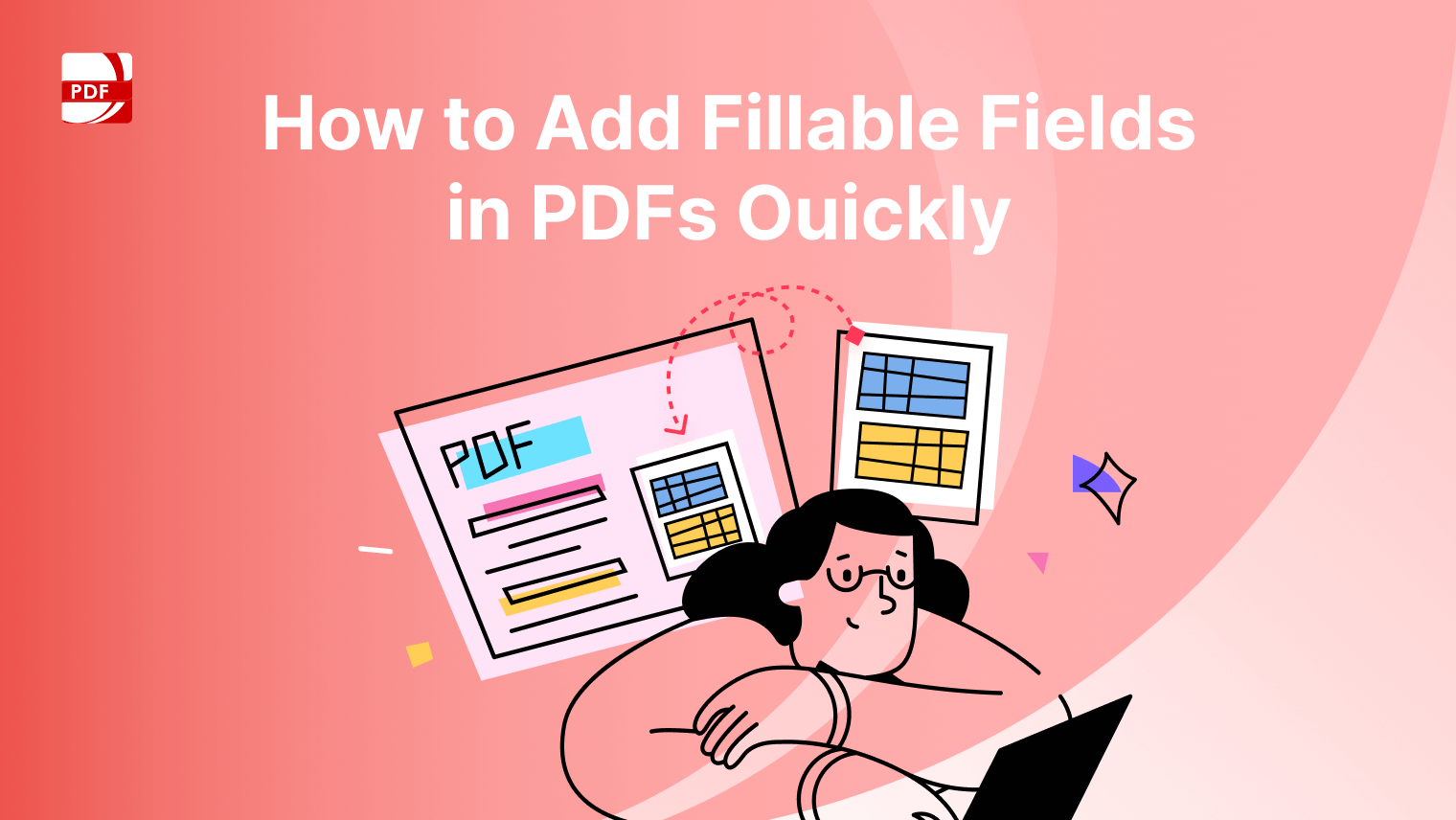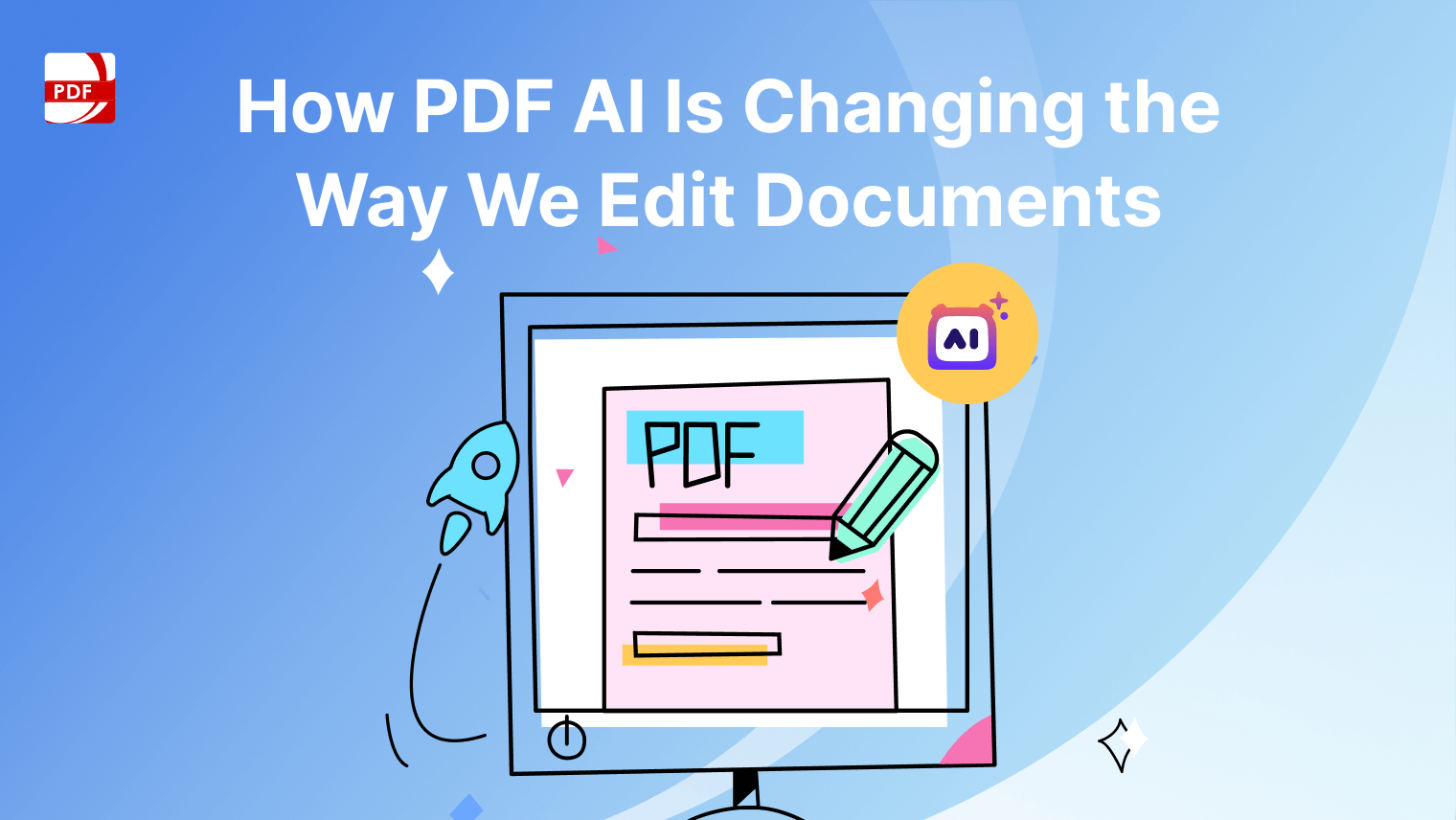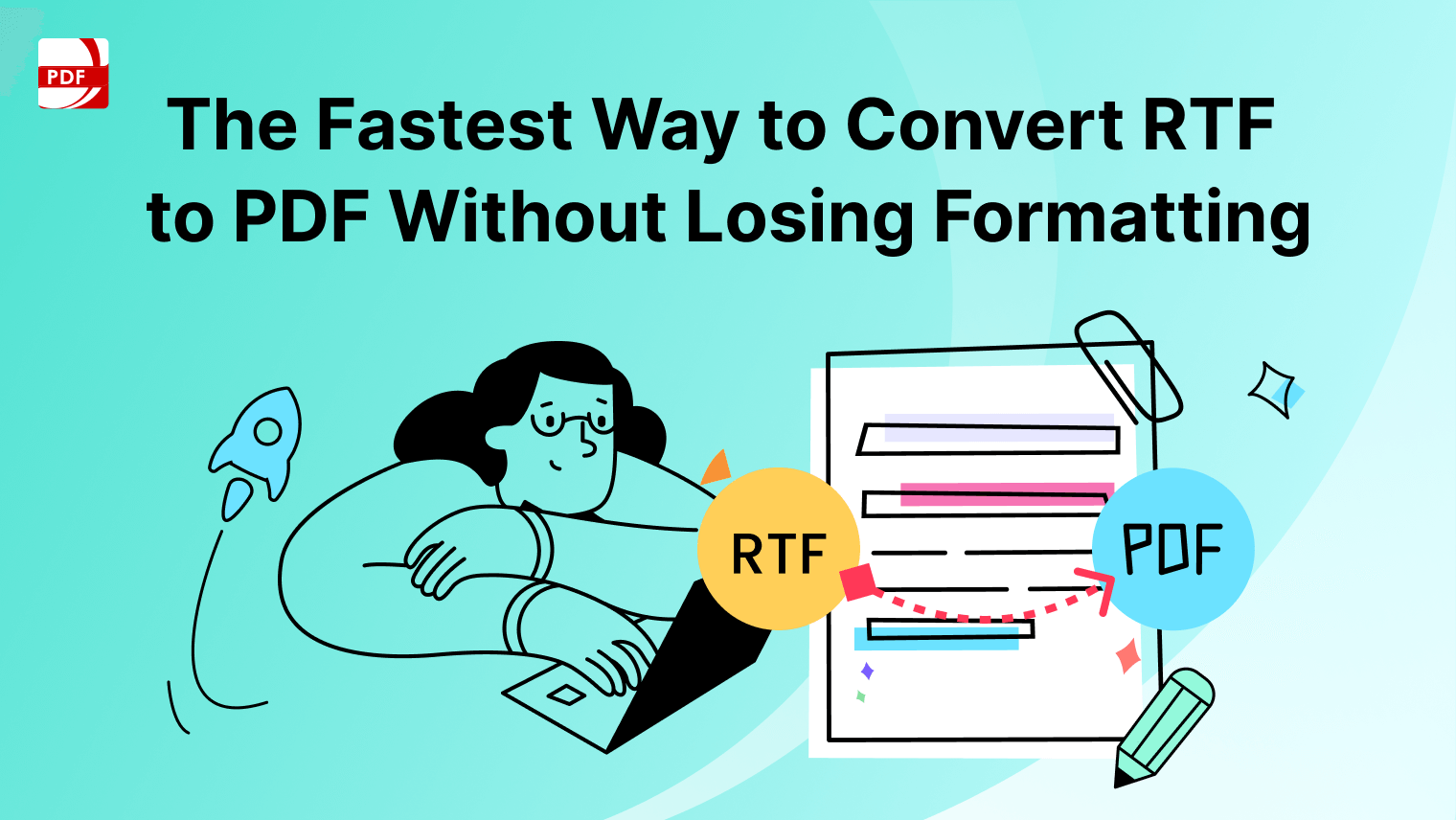Why does PDF become the most widely-used document format? The main reason is that it remains the same format no matter who you share the file with.
In another word, the component in the file won’t be distorted. PDF Reader Pro allows you to easily convert Word, Excel, and PPT to PDF.
How to Convert Docs to PDF on Windows?
Converting documents to PDF format is a crucial task for preserving the layout and ensuring that your documents can be viewed consistently across different platforms. we'll explore how you can easily convert documents to PDF on Windows:
Method 1: Convert from Reading Page
Step 1: Open PDF Reader Pro
Tap on the "File" option in the toolbar, then select "Create PDF" and choose "New From File." Browse and select a Word, Excel, or PowerPoint (PPT) document, then click "Open" to initiate the conversion.
Step 2: Save the Converted PDF
Once the document is open, click on "File" in the toolbar again, select "Save as." Choose a destination folder, then click "Save" to successfully convert and save the document as a PDF.
Method 1: Drag to Convert
Step 1: Launch PDF Reader Pro
Start PDF Reader Pro on your Windows device. Drag a Word, Excel, or PowerPoint file onto the application's homepage, which will automatically open the file in PDF Reader Pro.
Step 2: Save as PDF
After opening the document, click on "File" in the toolbar and choose "Save as." Select the desired destination folder and click "Save" to convert the document to PDF successfully.
How to Convert Docs to PDF on Mac?
Converting documents to PDF on a Mac is a straightforward process that enhances document portability and accessibility. Mac OS comes equipped with native tools and features that make the conversion seamless, ensuring that your documents retain their formatting and are easily shareable across different devices and operating systems.
Step 1: Open PDF Reader Pro on Mac
Navigate to the "Advanced Editing" option in the toolbar within PDF Reader Pro and select "Image to PDF" to begin the conversion process.
Image Source: PDF Reader Pro
Step 2: Save the Converted PDF
Click on "Add Files" to add more documents. Make sure you select your output as a PDF on the right.
Image Source: PDF Reader Pro
Step 3: Click "Save as PDF"
Once you have your settings in place, you can click the blue button to convert the document to PDF successfully on your Mac.
Image Source: PDF Reader Pro
You can also check our insights on the ComPDFKit website migration.
Online Apps to Convert Batch Documents to PDF
We found these platforms simplify the process, providing a user-friendly interface and often additional features for a comprehensive document management experience. Explore the following online apps tailored for batch document-to-PDF conversion.
1. Zamzar
How to Convert Documents to PDF on Zamzar
Easily convert your documents into PDF format with PDF2GO. This online tool allows for efficient batch file conversion. Follow this simple guide to begin the process.
Step 1: Go to Zamzar's Website
Navigate to Zamzar’s website.
Step 2: Select Files to Convert
Click on “Add Files…” to upload the batch of files you wish to convert. You can select multiple files at once for batch conversion.
Step 3: Choose Output Format
In the “Convert To” dropdown menu, select 'PDF' as the output format for your files.
Step 4: Start Conversion
Click on the “Convert Now” button to start the batch conversion process.
Step 5: Download PDFs
Once the conversion is complete, you will be given links to download the converted PDF files. You may download them individually or all at once, depending on the options provided.
2. PDF2Go
How to Convert Documents to PDF on PDF2GO
Quickly transform your documents to PDF using PDF2GO. This is an easy online tool for batch file conversion. Follow this brief guide to get started.
Step 1: Visit PDF2Go Website
Open your web browser and navigate to the PDF2Go website.
Step 2: Upload Files
Click on “Choose File” or drag and drop your files into the designated area. You can upload multiple files for batch conversion, but you might need to add them one by one depending on the site's interface at the time.
Step 3: Start the Conversion
After adding all your files and setting up any optional preferences, click on the “Start” button to initiate the batch conversion process.
Step 4: Download Your PDFs
Once the conversion is complete, download the converted PDF files.
3. Online2PDF
How to Convert Documents to PDF on Online2PDF
This detailed guide walks you through converting your documents to PDFs using Online2PDF, a comprehensive online service for batch file conversions. Perfect for first-timers and those seeking a thorough understanding.
Step 1: Navigate to Online2PDF
Open your web browser and go to Online2PDF.
Step 2: Upload Files
Click on "Select files" to upload the files you wish to convert. You can select multiple files for batch conversion. Ensure your files don't exceed the size limit per session (e.g., 100 MB in total).
Step 3: Choose Conversion Type
By default, the conversion type is set to convert files to PDF. You can keep this setting for converting files to PDF.
Step 4: Start Conversion
Once you've uploaded your files and set your preferences, click on the "Convert" button to begin the batch conversion process.
Step 5: Download PDFs
After the conversion is complete, you files will automatically be downloaded.
Benefits of using a PDF Format
Universal Compatibility
PDF (Portable Document Format) is universally compatible across different devices, operating systems, and software applications. This ensures that the document's layout, formatting, and content remain consistent regardless of where it is viewed or printed. Whether it's on a Windows PC, a Mac, a smartphone, or a tablet, PDFs provide a standardized format for seamless sharing and viewing.
Document Security
PDFs offer robust security features, allowing users to encrypt and password-protect their documents. This ensures that sensitive information remains confidential and prevents unauthorized access or modifications. Additionally, PDFs can be digitally signed, providing a secure way to verify the authenticity of the document and the identity of the sender.
Preservation of Formatting
One of the key benefits of PDF is its ability to preserve the original formatting of documents. Whether it's a text document, a spreadsheet, or a presentation, PDFs maintain fonts, images, colors, and layouts consistently. This is crucial for professionals who need to share documents while ensuring that the visual integrity of the content is maintained.
Compact File Size
PDFs are known for their efficient compression algorithms, resulting in relatively small file sizes compared to other document formats. This makes them easy to share, download, and store, particularly in situations where bandwidth or storage capacity is a concern. The compact size of PDFs facilitates faster document transfer and reduces the overall storage requirements.
Interactive Elements
PDFs support interactive elements such as hyperlinks, bookmarks, forms, and multimedia elements. This allows users to create dynamic and engaging documents, making them suitable for presentations, e-books, and forms. The inclusion of interactive features enhances the overall user experience and functionality of PDF documents.



